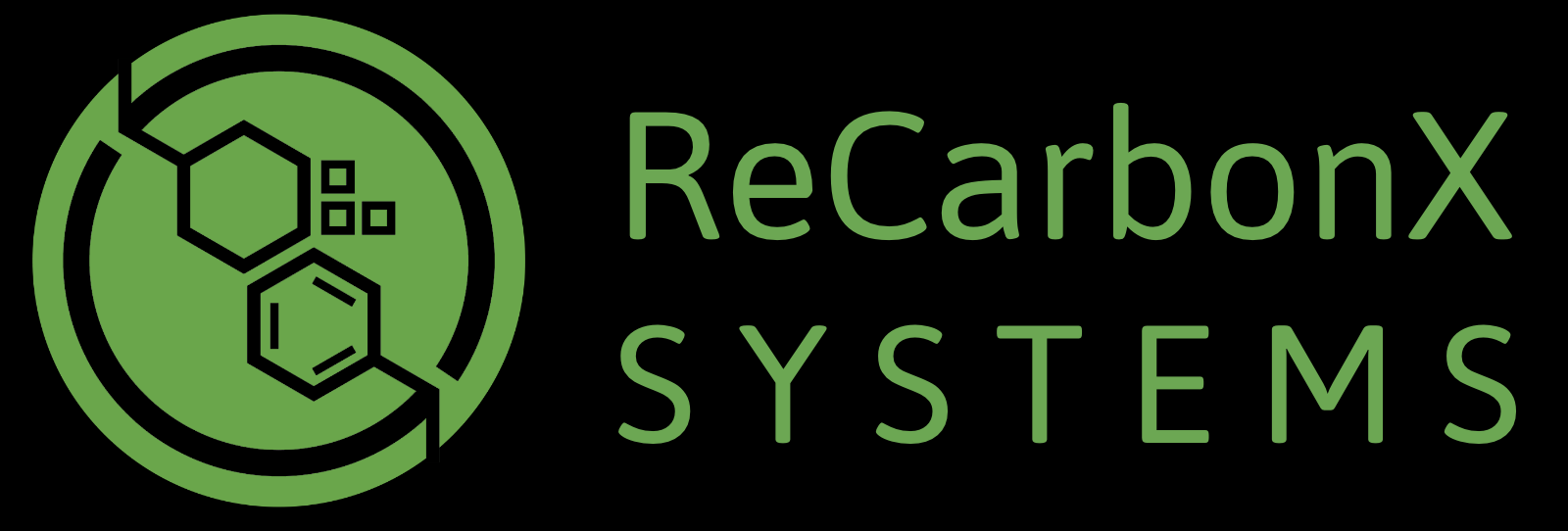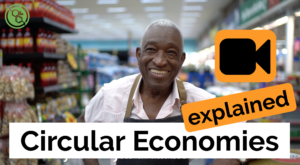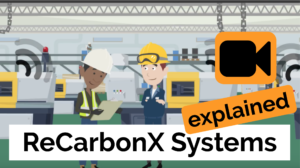… over 500 companies are publicly committing today to accelerate the reduction of their greenhouse gas emissions. —BCorporation
There’s a term in the German-speaking part of the world: Gretchenfrage or ‘the Gretchen Question’. There’s no real English equivalent, but it’s hard not to wonder if there’s a similar phrase in Swedish and if, when they were naming their daughter, the Thunbergs had this in mind.
“Gretchenfrage, as a generic term, refers to a direct question that goes to the heart of a problem and is intended to reveal the intentions and the disposition of the person asked. It is usually uncomfortable for the person asked, because it is intended to persuade them to make a confession that they have not yet made.” —Wikipedia (translated from German)
The thought landed in my head as I walked the length of the snowy main street in Davos, Switzerland, the evening after the CV VC Blockchain Summit this January. There had been a swirl of activism surrounding the World Economic Forum all week, heralded by the steady march of Greta’s activist entourage along the highway towards the alpine village. You probably saw the media images: the garish red wig and garb of a parodied Ronald McDonald clown, and the satirical walk of men in suits – the ‘other Donalds’ – brandishing briefcase placards.
“Withdraw from fossil fuel investments and stop using fossil fuels now,” was one of the messages. And, among Greta’s statements during her speech at the WEF Forum the following day was a bitter reminder that our house is still on fire.
“For the record, when we children tell you to panic, we are not telling you to go on like before,” she said. “We are not telling you to rely on technologies that don’t even exist today at scale and that science says perhaps never will. We are not telling you to keep talking about setting Net Zero emissions or carbon neutrality by cheating and fiddling around with numbers.”
She has a point. Chemical companies are announcing a commitment to Net Zero by 2030. Fashion companies are doing the same. We’re hearing these kinds of statements a lot, and one could say it’s a start; proof that awareness is being raised. Net Zero essentially means that emissions generated and saved through product production will be in balance, resulting in a state of ‘carbon neutral’ production.
However, many products on the market right now are already saving energy. And, despite this, the climate is still changing. All this means is that announcing Net Zero is a nice story to tell the world and investors but, once again, for many companies it’s merely confirming the status quo. Fiddling the numbers.
Until we have real-world data that can help us calculate the actual savings currently being made, we have no real bearing or point of comparison. Sustainability claims are just that – claims – and, without partners or collaborators getting on board right now, today – the next 10 years will likely be wasted in trying to work out how to measure savings and impact. Real data will help us visualize and give us some context; it’ll create a ‘proof of progress’ and allow us to hold companies accountable on the way to their 2030 goals. [More on how we can do this in a forthcoming article.]
Back to the blockchain summit in Davos, and discussions about WEF20’s sustainability theme were in evidence, likely prompted in part by WEF’s announcement that same day of a partnership (with Everledger, the International Trade Centre and Lenzing Group) to pilot the first public blockchain based platform, “to help businesses across industries respond to consumer demands for ethical and environmentally friendly products.”
In the face of broader environmental discussion, however, some participants admitted they were flat-out tired of the protests – and of Greta in particular.
“If you’ve had teenagers, you know they tend to complain,” one lawyer said. “Most of my friends are rolling their eyes because how is it actually changing anything?”
Well, to be fair, very few teenagers have the skills necessary to make technological or environmental changes at scale. But the lawyer’s point, if I understood from the context, was that WEF gave the stage not to a corporate leader with innovative solutions but to a worried teenager with no solutions, and “Why did they do that?”
To borrow a phrase from Seth Godin, Greta was there to “make a ruckus”. Because drawing attention to sustainability promises and questioning commitment to action does have a role to play in changemaking, however uncomfortable it may be to hear. Our children need to question the status quo – and challenge us loudly and in their own, authentic voices – because they are the ones who will inherit the planet.
Many of us will recognize that a targeted question often naturally elicits insights about the ‘intention and disposition’ of the person being asked. Great Thunberg’s question – like a Gretchenfrage – is not complicated. It’s simply: What are you going to do about it? We can view the ensuing spate of company promises as symptomatic; the ‘uncomfortable confession’ is still to come.
Until we hear a confession about the real state of things – until companies have the ability to show real data – anything else is a thin film of words and numbers floating aimlessly on a sea of promises.
*
Please get in contact with us at ReCarbonX Systems if you’d like to engage our integrated tracking system to showcase your ecological savings and impact.





